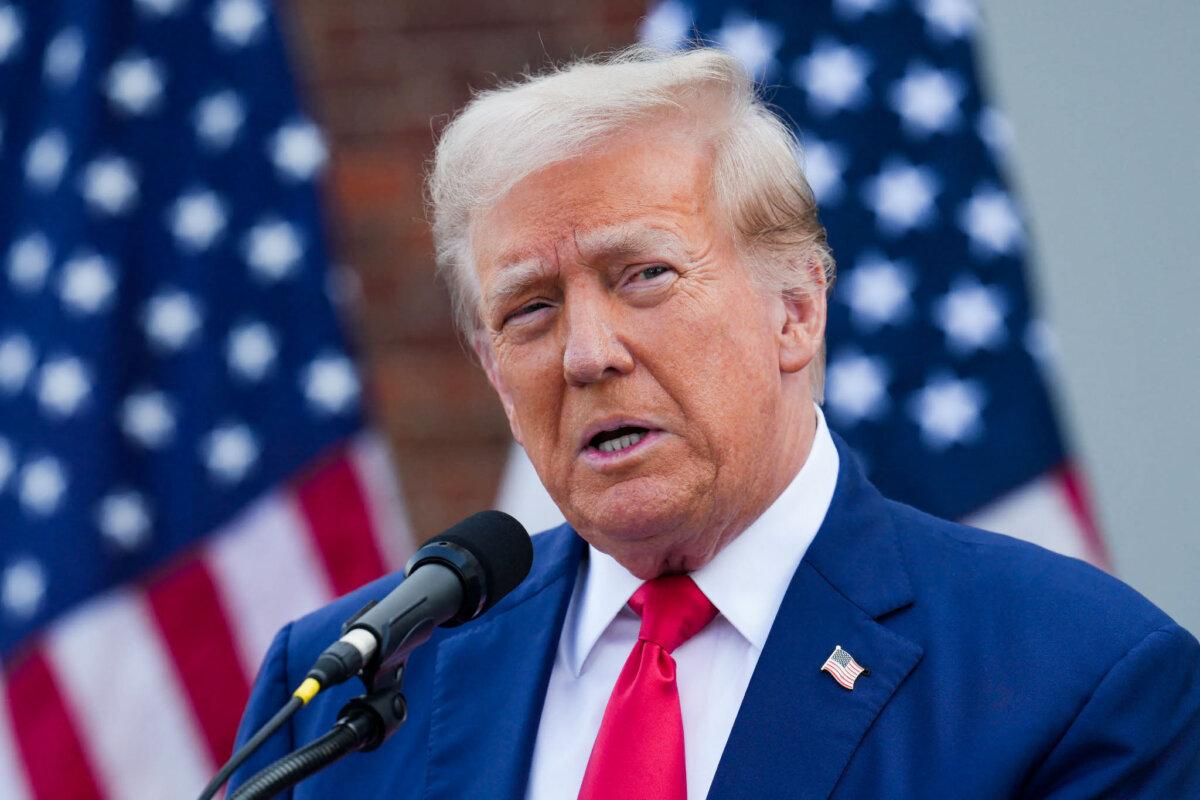Industry has long opposed caps on interest rates, saying it would “result in the loss of credit for the very consumers who need it the most.”
Former President Donald Trump has proposed a 10 percent temporary cap on credit card interest rates, which have spiked in recent years.
The Republican presidential candidate said it is time to rein in the charges.
“While working Americans catch up, we’re going to put a temporary cap on credit card interest rates,” Trump said at his Long Island rally on Sept. 18. “We’re going to cap it at around 10 percent. We can’t let them make 25 and 30 percent.”
The federal government published two reports earlier this year that placed the spotlight on credit card interest rates.
“CFPB research has found high levels of concentration in the consumer credit card market and evidence of practices that inhibit consumers’ ability to find alternatives to expensive credit card products,” the federal agency said. “These practices may help explain why credit card issuers have been able to prop up high interest rates to fuel profits.”
While Trump’s proposal was met with cheers and applause from the Long Island crowd, the financial industry has expressed resistance to previous rate cap proposals.
“While we don’t know the specific details of this proposal, ABA has opposed similar interest rate cap proposals in the past, including one from Sen. Bernie Sanders and Rep. Alexandra Ocasio-Cortez during the 2020 campaign, because they would result in the loss of credit for the very consumers who need it the most,“ a spokesperson for the American Bankers Association told The Epoch Times. ”Instead, these consumers would be forced to use less-regulated, more risky alternatives including payday lenders and loan sharks.”
In a statement to The Epoch Times, the Consumer Bankers Association declined to comment on Trump’s particular proposal but pointed to the industry’s long standing opposition to what it says are “government price controls on credit card interest rate proposals from both Republicans and Democrats,” adding that “these price controls only harm consumers.”
Peter Schiff, chief economist and global strategist at Euro Pacific Management, said it is akin to price controls.

Former President Donald Trump during a press conference at Trump National Golf Club, in Bedminster, N.J., on Aug. 15, 2024. Jeenah Moon/Reuters
If public policymakers determine what rate is too high and institute limits, businesses will trim the supply of credit and prioritize borrowers who are considered less risk, says John Berlau, the senior fellow and director of finance policy at the Competitive Enterprise Institute (CEI).
“If Trump’s proposal were enacted, credit cards would much less available to many Americans with less-than-perfect credit scores. But his proposal would not eliminate those American’s need for credit,” Burleau told The Epoch Times.
Some of these criticisms are supported by research over the years.

Rep. Alexandria Ocasio-Cortez (D-N.Y.) speaks during a hearing in Washington on Aug. 24, 2020. Tom Williams/Pool via Reuters
Without access to traditional credit instruments, low-income households would be forced to turn to costly alternatives, such as payday loans, which have high interest rates, Burleau notes.
“It would lead those who desire credit to options they may find less appealing than credit cards, including payday loans, pawn shops, and rent-to-own plans for items such as electronics and appliances,” he said. “While there is nothing inherently wrong with these options, consumers should have the choice of credit cards if they agree to the interest charges.”
According to the Consumer Financial Protection Bureau, the national average payday loan interest rate is nearly 400 percent.
‘Americans Are Being Crushed’
In recent years, lawmakers have also tried to impose caps on credit card rates.

Sen. Josh Hawley (R-Mo.) delivers remarks during the Senate Judiciary Committee confirmation hearing for Supreme Court nominee Judge Ketanji Brown Jackson in the Hart Senate Office Building on Capitol Hill in Washington, on March 21, 2022. Drew Angerer/Getty Images
Original News Source Link – Epoch Times
Running For Office? Conservative Campaign Consulting – Election Day Strategies!


